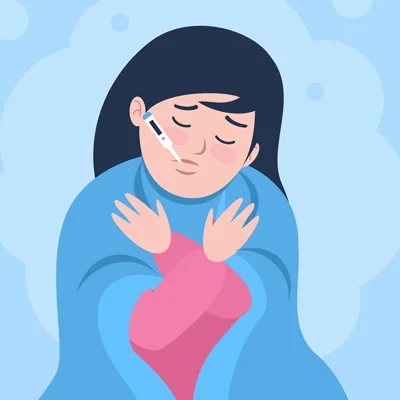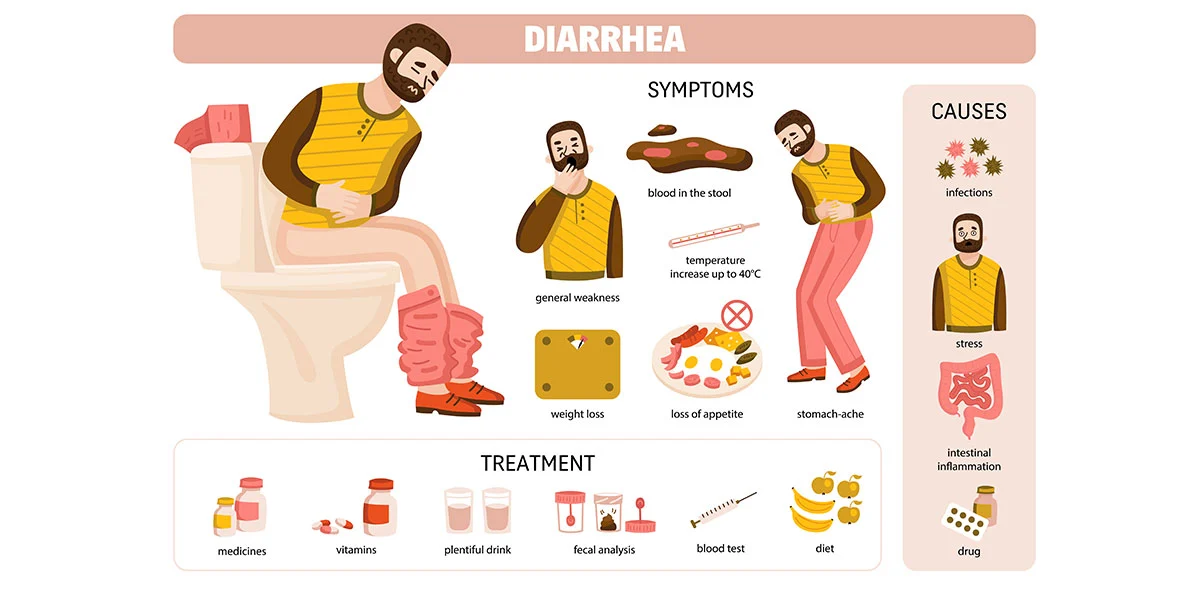Lassa Fever: Types, Symptoms, Causes & Home Remedies is an acute viral illness caused by the Lassa virus, a member of the Arenaviridae virus family. It is primarily found in West Africa, particularly in countries like Nigeria, Sierra Leone, Liberia, and Guinea. Lassa fever is named after the town in Nigeria where it was first identified in 1969.
The disease is transmitted to humans through contact with the urine or feces of infected rodents, primarily the multimammate rat (Mastomys natalensis). In addition to direct contact with these rodents, Lassa virus can also be transmitted through contaminated food or household items.
Types of Lassa Fever
Lassa fever itself does not have distinct types; it is primarily caused by the Lassa virus (LASV). However, the severity and presentation of the disease can vary among individuals. Lassa fever is generally classified based on its clinical manifestations, which can range from mild to severe.
Here are the main categories associated with Lassa fever:
- Asymptomatic Infection: Some individuals infected with Lassa virus may not develop any noticeable symptoms and are considered asymptomatic carriers. However, they can still transmit the virus to others, making them a potential source of infection.
- Mild or Common Lassa Fever: Many cases of Lassa fever present with relatively mild symptoms that are similar to those of common viral illnesses. These symptoms can include fever, weakness, headache, sore throat, muscle pain, and gastrointestinal symptoms like nausea, vomiting, and diarrhea.
- Severe Lassa Fever: In a subset of cases, Lassa fever can progress to a more severe and potentially life-threatening form of the disease. This severe form often includes symptoms such as respiratory distress, chest pain, bleeding from various body sites (hemorrhagic symptoms), and organ dysfunction. Severe Lassa fever is associated with a higher risk of mortality.
- Hemorrhagic Lassa Fever: A small percentage of individuals with severe Lassa fever can develop hemorrhagic symptoms, which include bleeding from the gums, nose, eyes, and other parts of the body. Hemorrhagic Lassa fever is the most critical and dangerous form of the disease and carries a higher risk of death.
It’s important to note that the severity of Lassa fever can vary from person to person, and factors like the individual’s immune response, viral load, and the timing of medical intervention can influence the course of the disease. Early diagnosis and appropriate medical care are critical in managing and improving the outcome of Lassa fever, particularly in severe and hemorrhagic cases. Public health measures, such as isolation of infected individuals and contact tracing, are also important for preventing the spread of the virus.

Symptoms of Lassa Fever
Lassa fever can manifest with a range of symptoms that can vary in severity from mild to severe. Some individuals infected with the Lassa virus may not display any symptoms at all, while others can experience a combination of symptoms.
Common symptoms of Lassa fever include:
- Fever: A persistent high fever is a hallmark symptom of Lassa fever.
- Weakness: Generalized weakness and fatigue are often present.
- Headache: Headaches can be severe and persistent.
- Sore Throat: Sore throat and difficulty swallowing may occur.
- Muscle Pain: Muscle pain and joint pain are common.
- Cough: A dry or productive cough can develop.
- Nausea: Many individuals with Lassa fever experience nausea.
- Vomiting: Vomiting is a common symptom, often accompanied by nausea.
- Diarrhea: Diarrhea is another gastrointestinal symptom that can occur.
- Abdominal Pain: Pain in the abdomen may be present, often due to gastrointestinal symptoms.
- Chest Pain: Chest pain can be a symptom, especially in more severe cases. In more severe forms of Lassa fever, additional symptoms and complications may arise, including:
- Respiratory Distress: Severe cases can lead to difficulty breathing and respiratory distress.
- Hemorrhagic Symptoms: Some patients with severe Lassa fever may experience bleeding from the gums, nose, eyes, and other mucous membranes. Internal bleeding can also occur.
- Organ Dysfunction: Lassa fever can lead to organ dysfunction, including liver and kidney problems.
It’s important to note that not everyone infected with Lassa virus will develop severe symptoms. The severity of the disease can vary, and some individuals may have only mild or moderate symptoms, while others may experience severe, life-threatening complications. Early diagnosis and prompt medical treatment are essential for improving the chances of survival and reducing the severity of the illness, particularly in severe and hemorrhagic cases. If you suspect you or someone you know may have Lassa fever, it’s important to seek medical attention immediately.
Causes of Lassa Fever
Lassa fever is caused by the Lassa virus (LASV), which is a single-stranded RNA virus belonging to the Arenaviridae virus family. The primary reservoir for the Lassa virus is the multimammate rat (Mastomys natalensis), which is a common rodent in West Africa. The virus is transmitted to humans through contact with the bodily fluids or excretions of infected rodents, and occasionally, it can be transmitted from person to person.
The main causes and modes of transmission of Lassa fever include:
- Rodent-to-Human Transmission: The primary mode of transmission to humans occurs when individuals come into contact with urine, feces, saliva, or blood of infected multimammate rats. This can happen through exposure to contaminated food, water, or objects.
- Human-to-Human Transmission: Lassa virus can be transmitted from person to person through direct contact with the blood, urine, feces, or other bodily fluids of an infected individual. Healthcare workers caring for Lassa fever patients are particularly at risk.
- Nosocomial Transmission: In healthcare settings, inadequate infection control measures can lead to the spread of Lassa virus among patients and healthcare workers. Contaminated medical equipment and surfaces can be a source of nosocomial transmission.
- Sexual Transmission: There have been reports of Lassa virus transmission through sexual contact with an infected person. This transmission route is relatively rare but has been documented.
- Airborne Transmission: While not common, there is evidence to suggest that Lassa virus can be transmitted through aerosolized particles from the respiratory secretions of infected individuals. This mode of transmission is more likely in severe and terminal cases.
Preventing Lassa fever primarily involves reducing exposure to the virus and implementing effective infection control measures. This includes:
- – Avoiding contact with rodents, their excretions, and urine.
– Practicing good hygiene, such as regular handwashing with soap and water.
– Storing food in rodent-proof containers.
– Implementing infection control measures in healthcare settings, including the use of personal protective equipment.
– Isolating and treating Lassa fever patients to prevent further transmission.
– Promoting public health education and awareness about the disease in affected regions.
Lassa fever is a significant public health concern in parts of West Africa, and efforts are made to control its spread, improve surveillance, and develop preventive measures such as vaccines and antiviral treatments.
Home Remedies of Lassa Fever
Lassa fever is a serious and potentially life-threatening viral disease. It is crucial to understand that there are no specific home remedies or over-the-counter treatments for Lassa fever. The management of Lassa fever should be conducted by medical professionals in a healthcare facility, and infected individuals should seek immediate medical attention. Home remedies are not a substitute for proper medical care.
If you suspect that you or someone you know may have contracted Lassa fever, here are some important steps to take:
- Seek Medical Care: Lassa fever requires medical intervention, and early treatment can greatly improve the chances of recovery. Consult a healthcare professional or visit a healthcare facility immediately.
- Isolate the Patient: While awaiting medical care, it’s important to isolate the infected individual to prevent the potential spread of the virus to others. This includes avoiding close contact with family members and practicing good hygiene, such as proper handwashing.
- Stay Hydrated: If someone is experiencing symptoms of Lassa fever, maintaining hydration is important. Encourage the patient to drink fluids like water, oral rehydration solutions, or clear broths to prevent dehydration.
- Rest: Adequate rest is essential for recovery and can help the body fight off the infection.
- Pain and Fever Management: Over-the-counter pain relievers and fever reducers, such as acetaminophen (paracetamol), can help alleviate some of the symptoms, but they should be used under the guidance of a healthcare professional.
It is crucial to avoid the use of traditional or herbal remedies or unproven treatments, as they may not only be ineffective but could also be harmful. Lassa fever is a potentially deadly disease, and treatment should be administered by healthcare professionals who are trained to manage the illness.
Prevention is key when it comes to Lassa fever. Taking precautions to avoid contact with rodents and their excretions, practicing good hygiene, and following public health guidelines are the most effective ways to prevent infection.
If you suspect Lassa fever or are in an area where it is prevalent, it is important to be aware of the symptoms, seek immediate medical attention, and follow the guidance of healthcare professionals and public health authorities.

Is Lassa fever a rare disease?
Lassa fever is not considered a rare disease, especially in certain regions of West Africa where it is endemic. It is estimated that there are thousands of cases of Lassa fever reported each year in these areas, with many more cases likely going unreported. Lassa fever is a significant public health concern in parts of West Africa, particularly in countries like Nigeria, Sierra Leone, Liberia, and Guinea.
The incidence of Lassa fever can vary from year to year and from one region to another within the affected countries. Outbreaks of the disease can occur, particularly during the dry season when the rodents that carry the Lassa virus are more likely to enter homes in search of food and shelter.
While Lassa fever is not as well-known globally as diseases like Ebola or Zika, it is a major health threat in the affected regions. Efforts to control the spread of the virus, improve healthcare infrastructure, enhance public health education, and develop preventive measures such as vaccines and treatments continue to be a priority in the fight against Lassa fever.
For individuals living in or traveling to areas where Lassa fever is endemic, it is important to be aware of the disease, take preventive measures to reduce the risk of infection, and seek medical care promptly if symptoms suggestive of Lassa fever develop.
How long does it take to recover from Lassa fever?
The recovery time from Lassa fever can vary significantly from one individual to another, depending on several factors, including the severity of the disease, the timing of medical intervention, the effectiveness of treatment, and the overall health of the patient.
Here are some general guidelines:
- Mild Cases: Some individuals with Lassa fever experience relatively mild symptoms, similar to a common viral illness, and may recover within a few weeks with appropriate medical care and supportive treatment.
- Moderate Cases: In cases of moderate severity, recovery may take longer, typically several weeks to a few months. The individual may require hospitalization and more intensive medical care.
- Severe Cases: Severe Lassa fever, especially when it progresses to a critical stage with complications such as hemorrhagic symptoms or organ failure, can be life-threatening. Recovery from severe cases is more protracted, and it may take several months. Some survivors of severe Lassa fever can experience lingering health issues.
It’s important to note that while most people infected with Lassa virus recover with proper medical care, the mortality rate for severe and hemorrhagic cases can be relatively high. Early diagnosis and prompt medical intervention are essential for improving the chances of survival and minimizing the severity of the disease. In the case of severe Lassa fever, intensive care and treatment of specific complications may be required.
Recovery typically involves a gradual improvement in symptoms, including fever reduction, alleviation of other symptoms, and a return to normal daily activities. Healthcare professionals will monitor the patient’s condition, provide supportive care, and treat complications as they arise.
Even after recovery, individuals who have had Lassa fever should undergo regular follow-up medical evaluations to ensure that there are no lingering health issues or complications related to the disease.
Please note that these are general guidelines, and the course of Lassa fever can vary from person to person. Patients should follow the guidance and treatment recommendations of their healthcare providers, as the severity and progression of the disease can be influenced by various factors.
Foodborne Diseases: Types, Symptoms, Causes & Prevention
Irritable Bowel Syndrome: Types, Symptoms, Causes & Prevention
Breast Cancer: Types, Symptoms, Causes, & Prevention
Migraine: Types, Symptoms, Causes & Home Remedies
Understanding Syncope: Symptoms, Causes & Home Remedies
Freckle: Symptoms, Causes, Prevention & Need to Know





